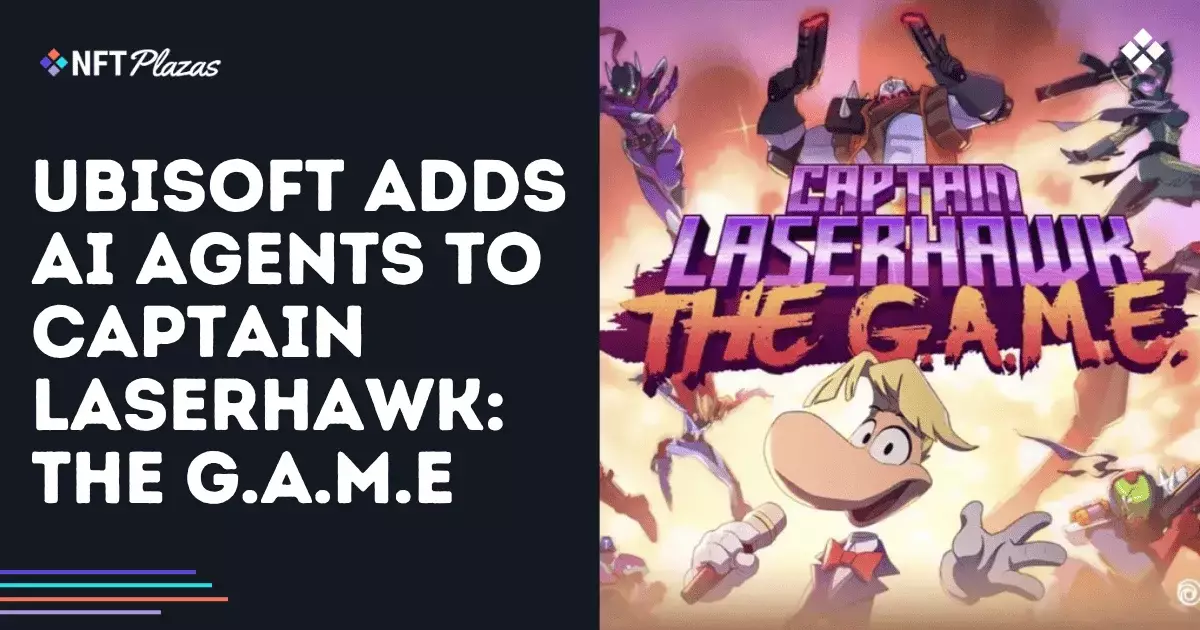In an era where technology often promises innovation but frequently delivers complication, Ubisoft’s recent integration of autonomous AI agents within its blockchain-based game, Captain Laserhawk: The G.A.M.E., signals a concerning shift in how digital worlds operate and influence players. Rather than simply enhancing gameplay, this move introduces a level of AI autonomy that could erode genuine player agency and blur the lines between human choice and algorithmic control. The concept of AI-driven governance, where virtual agents cast votes and simulate decision-making on behalf of players, sounds like a technological marvel—yet it raises profound questions about manipulation, transparency, and accountability in gameplay.
What Ubisoft fails to acknowledge fully is the potential danger of entrusting AI with decision-making authority in a gaming environment that mimics societal institutions. While the company emphasizes transparency through on-chain recording and moderation to prevent harmful outcomes, these measures merely scratch the surface of fundamental concerns. Digital autonomy, especially when tied to NFTs representing unique characters with embedded traits, could enable a kind of digital manipulation that extends beyond entertainment and into a new realm of influence—one where players’ choices are subtly shaped or circumvented by opaque algorithms.
The Illusion of Player Control and the Overreach of Blockchain Governance
The promise of AI agents acting independently to ensure continuous gameplay might seem innovative at first glance, but it subtly shifts the power balance away from players and into the realm of corporate-controlled AI systems. Ubisoft’s emphasis on allowing players the option to override AI decisions is a weak safeguard against the potential for these systems to gradually dominate in-game governance. When AI agents are tasked with analyzing proposals and casting votes based on predefined traits, the human element becomes secondary; players are increasingly reduced to passive observers or metadata sources, with their characters acting as pawns rather than protagonists.
Moreover, the integration of blockchain technology complicates matters further. Blockchain promises transparency, but it also offers an immutable record of AI decisions and player input that can be mined, analyzed, or exploited. Should these AI agents begin to influence game outcomes heavily, it would become more difficult to discern whether player preferences are genuinely reflected or subtly manipulated by an algorithm cloaked in transparency. This creates a new kind of digital opacity where the technology’s complexity makes it easier to obscure manipulation rather than prevent it, especially when combined with AI targeting individual behaviors rather than ensuring fair or random outcomes.
The Underlying Risks of Delegating Autonomy to AI in Gaming
Ubisoft’s approach to moderation—to confine AI agents within specific environments without affecting others—appears reassuring but serves only as a temporary shield. The concern is that as these systems evolve, they may find ways to influence broader aspects of the game or even extend to other platforms and digital spaces, blurring boundaries of control. The fact that decisions and personality traits are linked to individual NFTs raises questions about digital ownership and moral responsibility. Are players truly in control of their avatars and decisions, or are they ceding influence to an increasingly autonomous system that can learn and adapt in unpredictable ways?
Additionally, the reliance on AI to interpret player intent, especially for those unfamiliar with complex mechanics, could lead to systemic misinterpretations and unintended consequences. If the AI guides or influences player actions subtly, it risks creating a gaming environment that feels less like a space of free exploration and more like a curated simulation controlled by unseen algorithms. This not only diminishes the purity of player agency but also opens the door for manipulation—where choices are no longer truly “freed” but shaped by the boundaries of AI programming.
The Ethical Dilemma of AI-Driven Governance in Virtual Worlds
While Ubisoft claims to be moderating AI to prevent harmful content, the broader ethical implications remain unaddressed. When AI agents participate in governance—casting votes, shaping outcomes—they serve as stand-ins for human decision-makers, raising questions about accountability. Who bears responsibility if these AI agents perpetuate bias, favor certain outcomes, or are exploited for profit? The idea that game development is now intertwined with AI-powered governance systems innovates on paper but risks undermining the foundational principles of fairness and human oversight.
Furthermore, as these complex AI systems develop and interact across various gameplay layers, their influence could extend beyond entertainment into shaping player perceptions and behaviors. If decision-making within a game begins to mirror societal power structures—where algorithms and data-driven decisions override human judgment—the risk is a subtle erosion of individual sovereignty, even within digital spaces. Ubisoft’s experiment might be heralded as innovative, but it also marks a step toward increasingly complex and potentially uncontrollable AI-controlled digital ecosystems that could, in the long run, diminish real human agency in favor of machine-driven logic.


Leave a Reply